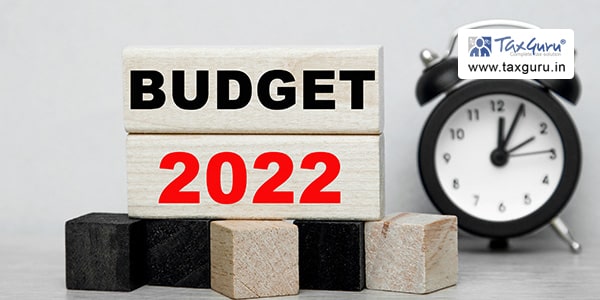The Union Finance Minister Nirmala Sitharaman is all set to present the crucial Union Budget 2022 on 1st February, 2022. According to Article 112 of the Constitution of India, 1949, Budget is a declaration of the government’s estimated receipts and expenditure for that particular year.
It is almost imperative that the budget will focus on key employment, public health, MSME development and aggregate demand generation. However, this year Union Budget is expected to lay a roadmap for India’s economic revival amid the rising COVID cases across the country. The Finance Minister’s speech is likely to spell policies and measures that target boosting the country’s healthcare system, employment generation, encouraging foreign investments, relief for real estate and infrastructure sectors, digital education, realignment of tax rates to taxpayers etc.
To be more detailed, my expectations from the finance minister in the upcoming budget related to trades could be summarized up as:
Page Contents
1. Boosting Healthcare System
As the Covid-19 pandemic continues, Health has become the biggest priority for Indians. To address the issue, the government should come up with various reforms such as mandatory/tax saving health saving plan/scheme, private health insurance reforms to increase enrolment and comprehensive cover for all aspects of senior ages. Recommending Tax Holidays for setting up hospitals in rural areas and receiving funding by the government Cities which in turn will lead to strengthen the healthcare infrastructure.
2. Access to Digital Education
The Pandemic has resulted in tremendous loss for a large number of students across states, from shutting down of schools and shifting of traditional classrooms to digital platforms, to inequality among children and pushing children out of school due to non access to digital platforms. Therefore, it is essential that the Government should set up programmes and tie ups with private players to strengthen the digital infrastructure for a greater reach and aid in achieving the Atmanirbhar Education System.

3. Relief for Real Estate, Manufacturing, Infrastructure Sector
While, the government has already given few benefits such low home loan rates, stamp duty cuts, tax benefit extension and affordable housing, these sectors expect a helping hand by giving some relaxation in taxation slabs, favourable policy which will help the sector flourish by creating new avenues. Reduction in GST Rates for key material, extension of credit linked subsidy scheme (CLSS), attractive incentives across industries are some changes which are expected from this budget. The government should bring up more Production Linked Incentive (PLI) Schemes in manufacturing sectors and provide rebates for newly developed industries.
4. Personal Finance of Taxpayers
The Union Government should consider realignment of income slabs and tax rates for individuals under both old and new tax regimes, expanding the deduction limit under investment instruments, increasing the limit for housing for all schemes, enhancing the deductible limit on housing loan interest, replacing the cap of standard deduction for salaried employees, providing tax free work from home allowances among others. Keeping the pandemic and the rising inflation in mind, the government should increase the Section 80C limit to Rs.2,50,000, extending the additional tax deduction of Rs. 1.5 lakh on interest paid on housing loans under Section 80EEA by one more year.
5. Tax framework for crypotocurrencies
The popularity of Cryptocurrencies have rise steeply in India. Although crypto assets are unregularized, the government is expected to introduce a cryptocurrency bill in the budget stating the method of computing the fair market value costs, taxable income, reporting requirements etc.





